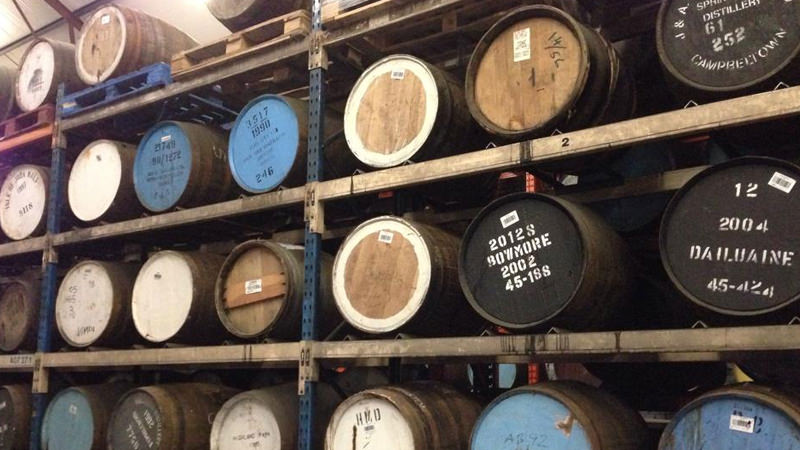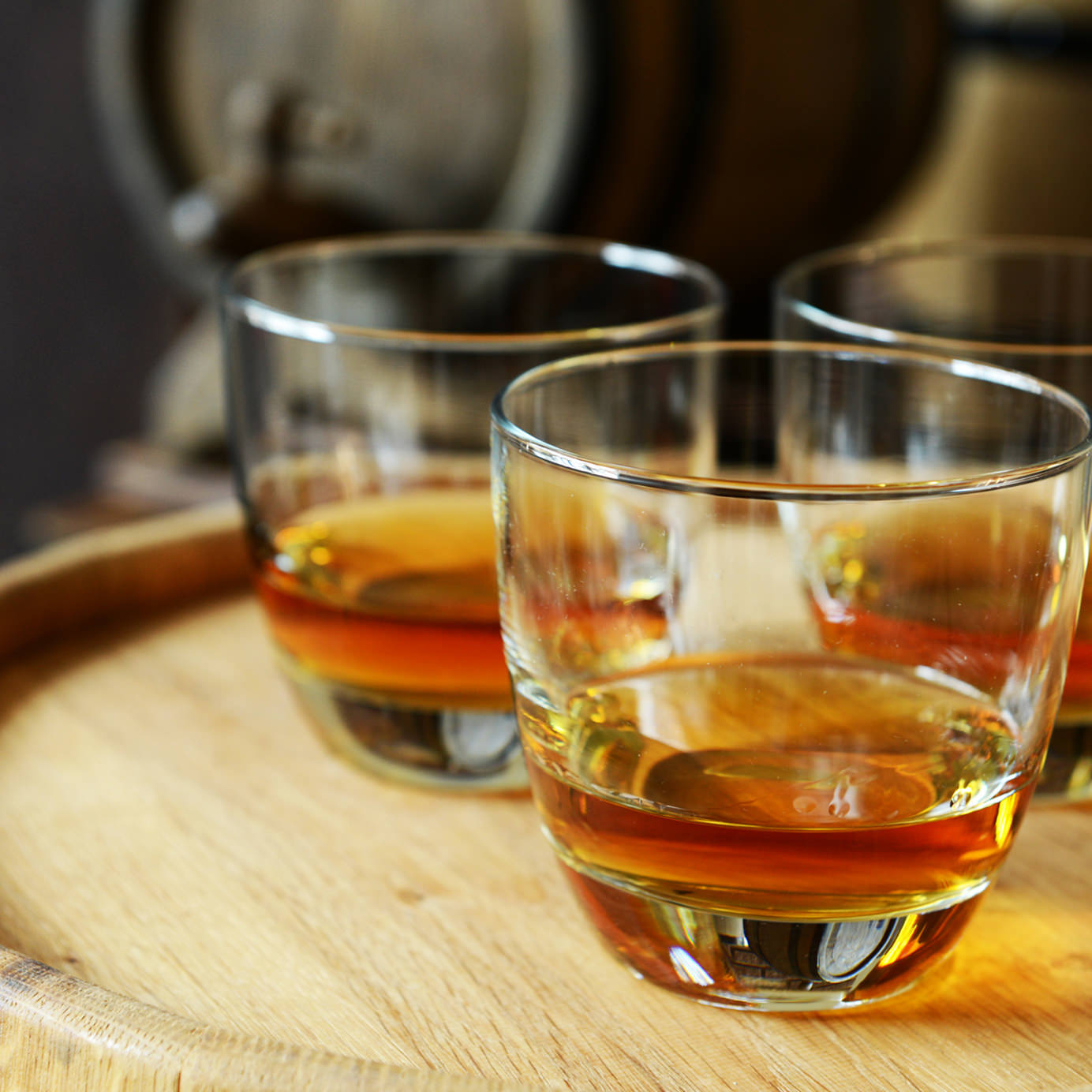For those of us who set Google Alerts for whiskey auction sales (ahem: guilty), these are boom times.
Last month, a Yamazaki 50 Year Old sold for around $300,000. Before that, in September 2017, a bottle of Dalmore 62 Year Old went for nearly $130,000.
There’s money in whiskey collecting, and collectors multiply by the day. The Platinum Whisky Investment Fund reported that the world’s best whiskies appreciated anywhere from 130 to 230 percent from 2011 to 2013.
There are several ways to invest in whiskey. Bottles are widely available. Some collectors love having their prized bottles close, sitting on the shelf, where they can be admired each and every day. Others opt for the quick turnover. Buy a bottle on release and quickly sell it to a secondary market for profit.
Then there is the lucrative, adventurous path of cask investment. Didn’t know this method existed? It’s not yet as mainstream as investing in bottles, but many great companies have started up in an attempt to supply fans and connoisseurs with casks from their favorite distilleries. Methods range from full cask ownership to fractional investments and trades.
The Process
In its simplest form, would-be investors can simply contact a distillery, choose a cask, and pay. That’s it, you’re done. The process is simple and requires you to store nothing but a digital copy of your cask certificate.
Many distilleries offer casks of new make spirit, like the Arran distillers, micro casks by Bruichladdich, or yet-to-be-distilled casks from the soon-to-open, Ardnahoe distillery, Islay’s ninth.
Samples can be provided, and storage at the distillery or at a Scottish bonded warehouse costs around $50 a year. Casks can be moved from warehouse to warehouse as well. (Under Scottish law, however, whiskey must be bottled before leaving the country.)

The Players
Another way to pursue cask ownership is via investment companies. Cask 88 is one of the industry’s biggest cask-selling companies, buying barrels on the secondary market from labels like Macallan and selling them to consumers.
“If you’re looking for old and rare Scottish whisky,” Patrick Costello, director of Cask 88, says, “We encourage you to be in touch to discuss what you’re looking for.” The team leads investors through the process, from buying to art or labeling (when of interest) to storage.
For much older cask purchases, the annual angel’s share is taken into account, and the company can advise on when it’s best for the cask to be bottled.
WhiskyInvestDirect takes investment and trading to the next level. Think of it as the stock market of whisky investment.
Through an online platform, enthusiasts can trade in Scotch whisky increments as small as one liter of pure alcohol at a time. Monthly lists published on the website act as proof that the casks being traded are indeed secure, held in bonded warehouses. Insuring your assets is cheap, and purchasing can be done easily by following the steps on the platform.
While not suitable for those only just delving into casks or investment in general, WhiskyInvestDirect provides a wonderful platform, which allows buyers and sellers to link directly with each other for sales and purchases. It also allows distillers to produce freely, without the fear of producing too much or too little.
Bartels Whisky acts as a buyer, seller, and independent bottler of rare Scotch whisky, bourbon, tasting sets, and other spirits. It’s a one-stop shop for private bottlings and casks, offering casks of whiskey, gin, and rum, in bulk or individually. It also supplies very young casks, even new fill, acting as somewhat of a wholesaler. The new fill casks in particular can be highly profitable if you make the right investment.
The Appeal
Part of the appeal of cask ownership is, of course, financial. While a bottled distilled spirit will remain as is, casks provide continued maturation. The whiskey will continue to evolve until you, its owner, decide to sell or bottle it. A cask purchased today for a few thousand dollars could be valued at over $100,000 in 20-30 years.
At the end of 2017, a 30-year-old Macallan barrel set the world record of most expensive cask ever sold, after going for $375,000 at the Spink Hong Kong auction house. This is no way definitive, but it does demonstrate the potential for growth (albeit on the highest end of the spectrum).
Cask 88’s Costello says that no one can see the future. The profit to be made very much depends on the brand and distillery, and its growth in the coming years. The tale told repeatedly in the world whiskey industry is that distillers all over the world never expected today’s enormous market surge to occur.
Still, he says, the appeal is there. “We work with a huge variety of clients,” Costello says. “Some are looking to bottle a cask for a wedding or an anniversary, while others want to create a bespoke bottling for their bar. Some are in it to invest, and others simply want to own a part of their most loved distillery.”
As with any type of investment, the risk is better when backed by passion. So buy a cask you love. Odds are, 20 years from now, it will be worth a whole lot more than you pay today.
